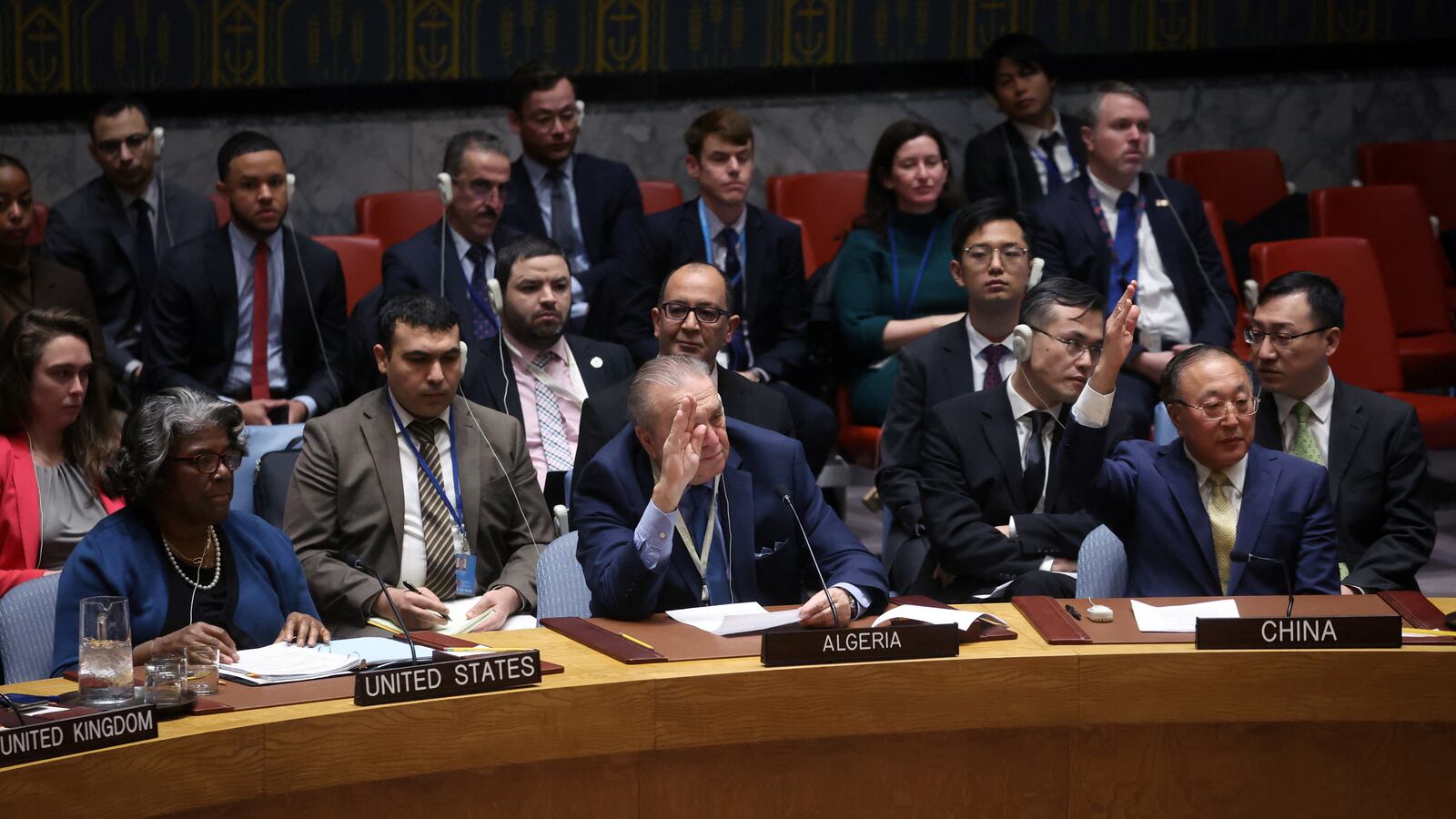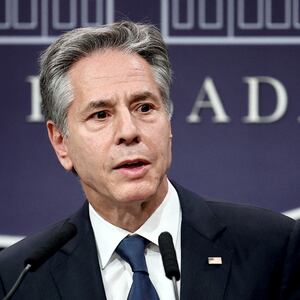Russia and China on Friday blocked a U.S.-backed United Nations Security Council resolution calling for “an immediate and sustained cease-fire” in Israel’s war against Hamas in Gaza.
Eleven members of the council voted in favor of the resolution, which the U.S. hoped would allow for more aid to enter the enclave and save the lives of civilians. Russia and China—permanent council members with veto powers—were joined by Algeria in opposing the measure, while Guayana abstained.
The proposal’s defeat comes after the U.S. previously stood alone in vetoing three earlier proposed resolutions similarly calling for a ceasefire. The most recent attempt, in February, was blocked by the U.S. on the grounds that it could interfere with sensitive negotiations to release hostages being held by Hamas. Britain abstained in that vote as it had done in the earlier two votes in which Washington, D.C. exercised its veto.
Ahead of Friday’s vote, Russia’s U.N. Ambassador Vassily Nebenzia claimed that Moscow endorses the idea of an immediate ceasefire, but he took issue with some of the details of the resolution and accused U.S. Ambassador Linda Thomas-Greenfield of intentionally “misleading the international community” for “politicized” reasons, according to the Associated Press. He also mocked the “hypocritical spectacle” of the U.S. failing to restrain Israel and then demanding a ceasefire after “Gaza has been virtually wiped off the face of the Earth.”
Thomas-Greenfield said after the failed vote that China and Russia chose to block the resolution because they did not want the U.S. to succeed. “Once again, Russia put politics over progress,” she claimed. Barbara Woodward, the U.K.’s representative, said she is “deeply disappointed” by the defeat but said Britain will do “everything we can” to get humanitarian aid into Gaza, the BBC reports.
Secretary of State Antony Blinken on Thursday said an “immediate, sustained” ceasefire is needed to “create space to surge more humanitarian assistance, to relieve the suffering of many people, and to build something more enduring.” He also expressed his hope “that all countries” back the U.S. resolution and said international negotiators continued to work on a deal to secure the hostages’ release.
The Biden administration has grown increasingly critical of the way Israeli Prime Minister Benjamin Netanyahu is prosecuting the war sparked by Hamas’ Oct. 7 terror attacks, openly opposing his stated aim of invading the city of Rafah in southern Gaza where over a million Palestinians are sheltering. Gaza’s Hamas-run health ministry says that almost 32,000 people have been killed since fighting erupted five months ago.
A U.N.-backed authority issued a warning this week that famine is “imminent” in Gaza, with around 210,000 already estimated to be facing catastrophic hunger. The Integrated Food Security Phase Classification (IPC) initiative report concluded that “an immediate political decision for a ceasefire” combined with “significant” increases in aid were needed to avoid or alleviate the projected famine.






